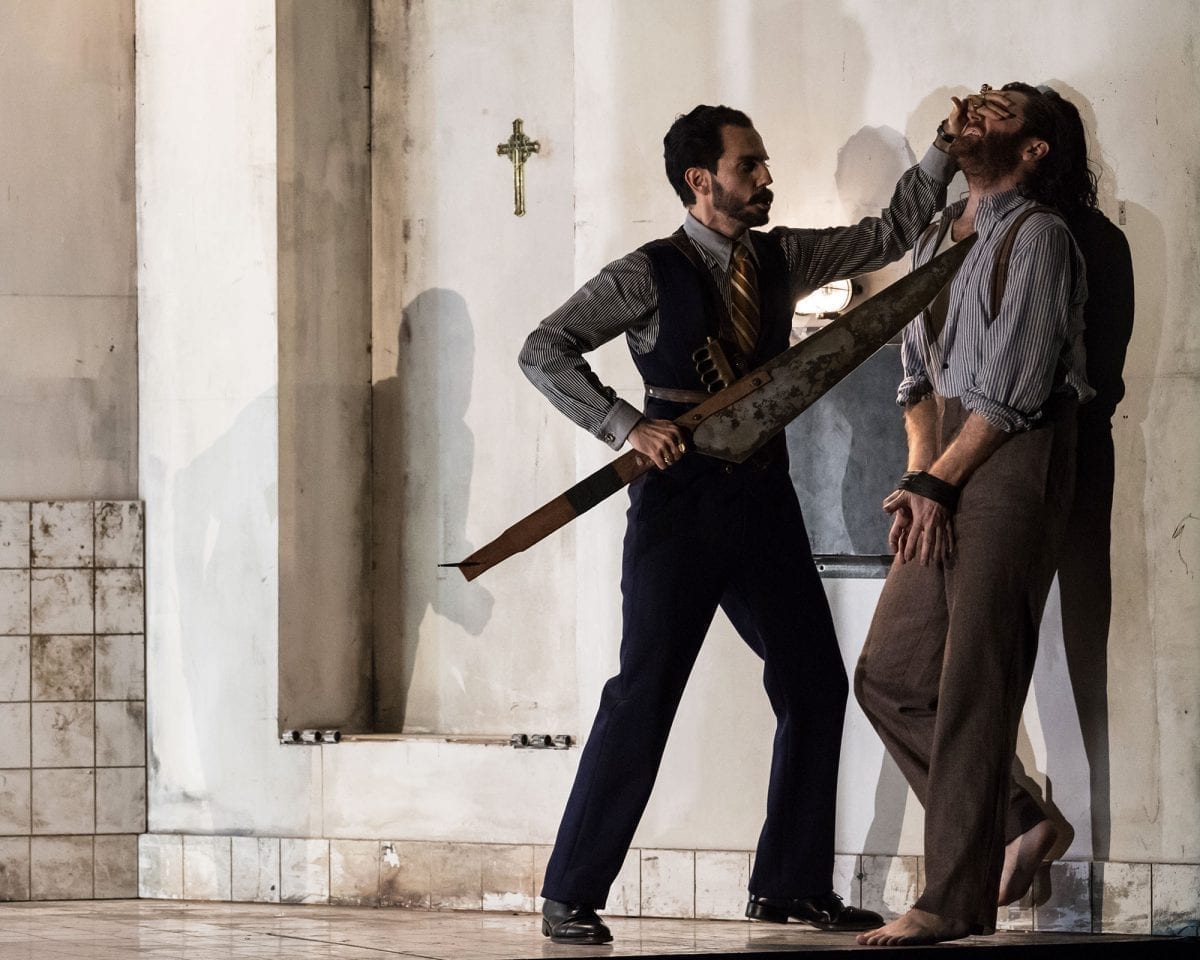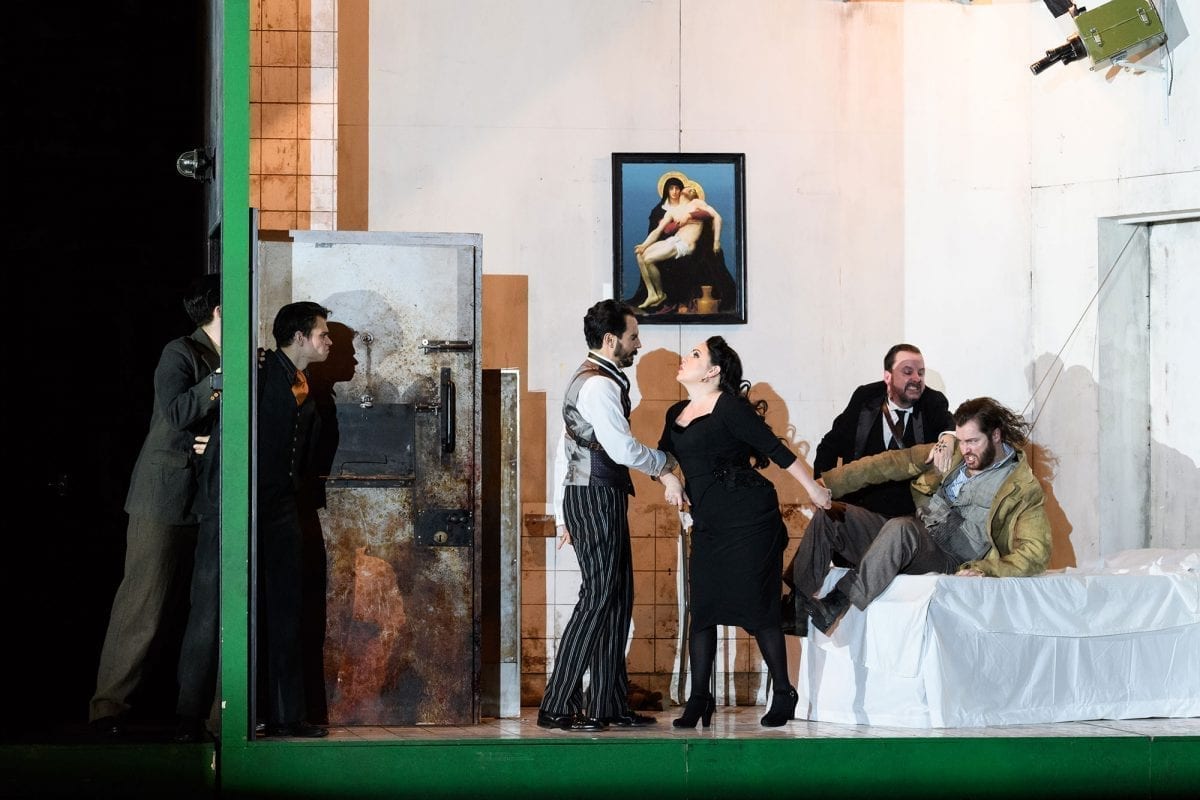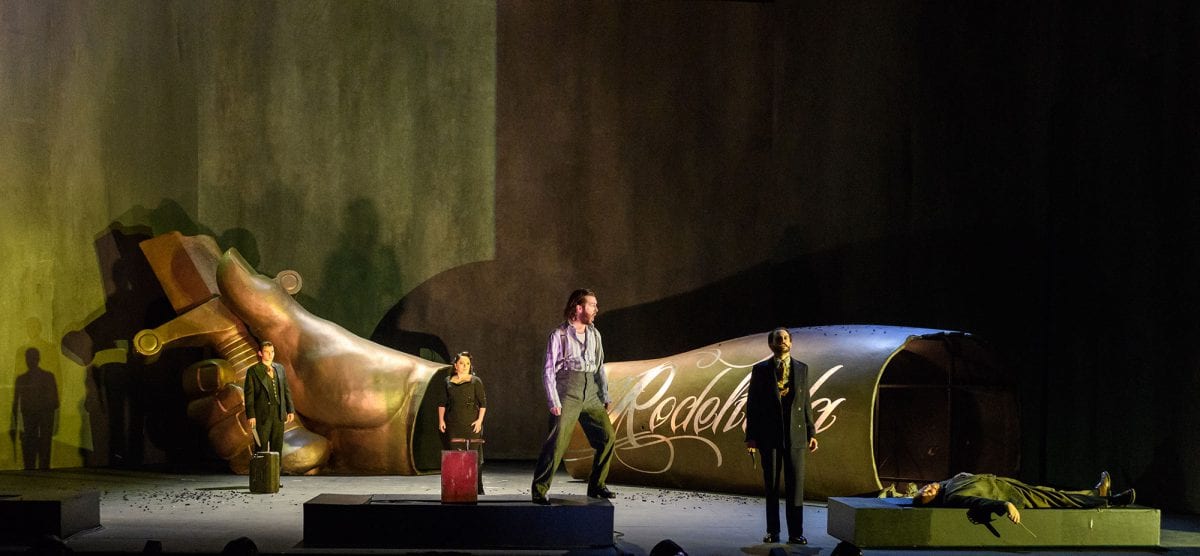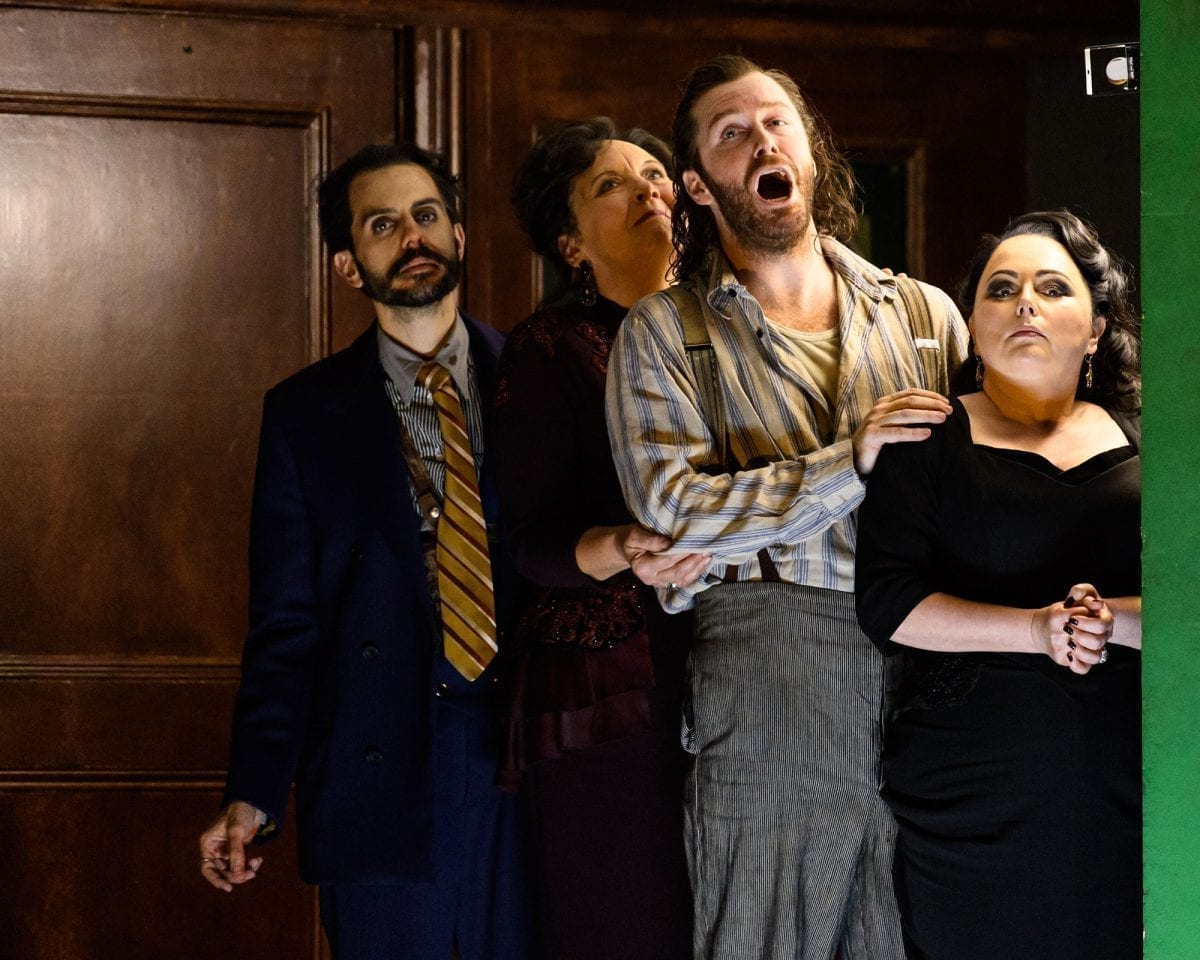Before I even get around to talking about this very intelligent and moving production of Handel’s masterful opera Rodelinda, I have to state the this is musically one of the best performances I have ever seen or heard of this opera in every way. The conducting of Christian Curnyn is completely convincing throughout at every level, his pacing, his control of the orchestra and his support of the terrific cast of singers, and his conducting has a wonderful lilt and propulsion at all times, even at the most sombre moments. I have to begin with full praise for the central role: Rebecca Evans’s singing and acting is never less than superb. She commands all the requirements of playing Rodelinda with stunning ease. She has beautiful, crystal clear diction, gorgeous high notes like laser beams, and a capacity for pianissimi to rival Montserrat Caballé or Margaret Price that can be heard throughout the huge auditorium. Her phrasing is varied and impeccably lovely at all times; and her sense of the drama in the music utterly convincing. She commands the stage. Tim Mead seemed never to take a breath, so seamless was his line; and his sound was beautiful at all times. His acting as Bertarido was never less than involving, and he achieved the impression of heroism not just through his acting but with his voice, with his timbre. His was an exceptionally impressive rendering of this complex role. His friend Unulfo, played by the American counter tenor Christopher Lowrey, was consistently very appealing. He was also brilliantly comic at times.
Dramatically and vocally there was not a weak link in this production – full praise must also go to Juan Sancho’s complex, bitterly attractive and vocally strong Grimoaldo; to Susan Bickley’s edgy Eduige; and to Neal Davies’s superbly villainous Garibaldo. Everyone on that stage had a complete understanding of the stylistic demands of the music and the characterizations. If you have friends who are resistant to baroque opera, take them along to one of the remaining performances of Rodelinda at the Coliseum and they may yet be convinced of the glories of Handel. Special Mention must also be made of Matt Casey in the silent role of Rodelinda’s beloved son, Flavio. His acting and miming were captivating and dramatically powerful at all times. And I loved the surprise ending.
Richard Jones has approached this opera with real understanding of the music and the dramatic style and his updating of the story to a Fascist Italy is not only well thought-through in every detail but appallingly apt when we are watching daily on the news a resurgence of unthinking and unblinking authoritarianism in so many parts of Europe and America. It is also true to the original text in its interpretation and amplifies rather than overwhelms what Handel and Nicola Francesco Haym clearly intended with real wit and without in any way betraying the original work. The story is based vaguely on actual historic happenings and for once the use of modern day surveillance techniques and the placing of this story within the context of a contemporary dictatorship has complete relevance and gives the audience greater access to the work itself. Jones also has a fine sense of the absurdity of baroque opera plotting and there were quite a few laughs, some of them very uncomfortable, most of them utterly hilarious.
It was clear at the end that the audience had had a very good time indeed; and that the performers were a very happy and cohesive company working with total commitment.





